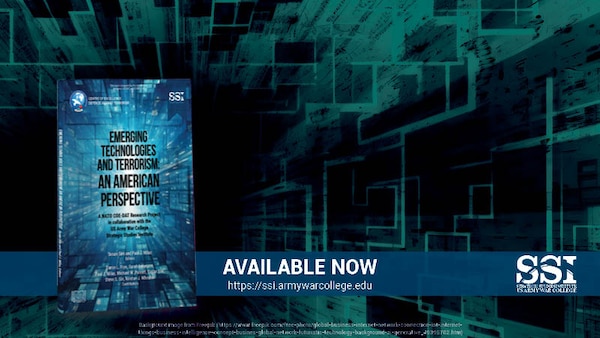In a world where technology is rapidly advancing and becoming available to the masses, businesses and policymakers are faced with the frightening reality that non-state actors are using innovation for nefarious purposes. Artificial intelligence (AI) and autonomous systems promise enhanced threat detection, but terrorist organizations are exploiting these tools for recruitment and attacks. As AI becomes more pervasive and autonomous systems and augmented reality redefine society, we are concerned about the future.
A joint study between NATO COE-DAT and the U.S. Army War College Institute for Strategic Studies has resulted in a groundbreaking report. This book reveals grim predictions that terrorists will seek to exploit advances in artificial intelligence, autonomous systems, augmented reality, biotechnology, and nanotechnology. In an era of rapid technological evolution, the lines between reality and fiction are blurring, and governments, industry, and academia are being asked to come together to develop ethical frameworks and regulations. As geopolitical trends change, NATO emphasizes national responsibility in the fight against terrorism and asserts collective strength against looming technology-driven threats. But questions remain. Will the regulatory framework be able to keep up with technological innovation? Will the industry prioritize ethical considerations over profit margins?
editor
Susan Sim, Eric Hartunian, Paul J. Millas
contributor
Darrin L. Fry, Sarah Roman, Paul J. Millas, Michael W. Parrott, Susan Sim, Steve S. Singh, Kristan J. Wheaton
Read now
Source link


